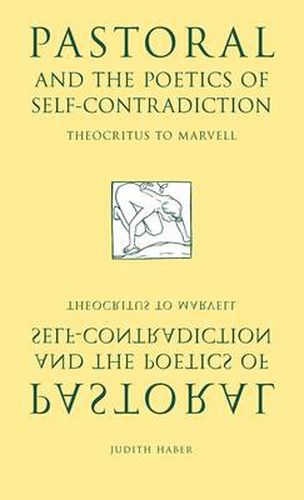Readings Newsletter
Become a Readings Member to make your shopping experience even easier.
Sign in or sign up for free!
You’re not far away from qualifying for FREE standard shipping within Australia
You’ve qualified for FREE standard shipping within Australia
The cart is loading…






Traditionally, critics of the English Renaissance have viewed pastoral as a static, idealising genre, aimed at the recreation of an idyllic past. More recently, these idealising humanist approaches have been forcefully challenged by studies written from historicist perspectives. In Pastoral and the Poetics of Self-Contradiction Judith Haber complicates the conventional opposition between humanist and historicist criticism by examining the ways in which pastoral poets themselves interrogate the contradictory relations inherent in their genre. Haber explores problems of representation, self-representation, and imitation in classical and Renaissance pastoral, focusing on texts by Theocritus, Virgil, Sidney and Marvell. Her original approach revises current understanding of pastoral as a genre, and raises wider questions about the place of literature in society and the difficulties involved in constituting literary traditions.
$9.00 standard shipping within Australia
FREE standard shipping within Australia for orders over $100.00
Express & International shipping calculated at checkout
Stock availability can be subject to change without notice. We recommend calling the shop or contacting our online team to check availability of low stock items. Please see our Shopping Online page for more details.
Traditionally, critics of the English Renaissance have viewed pastoral as a static, idealising genre, aimed at the recreation of an idyllic past. More recently, these idealising humanist approaches have been forcefully challenged by studies written from historicist perspectives. In Pastoral and the Poetics of Self-Contradiction Judith Haber complicates the conventional opposition between humanist and historicist criticism by examining the ways in which pastoral poets themselves interrogate the contradictory relations inherent in their genre. Haber explores problems of representation, self-representation, and imitation in classical and Renaissance pastoral, focusing on texts by Theocritus, Virgil, Sidney and Marvell. Her original approach revises current understanding of pastoral as a genre, and raises wider questions about the place of literature in society and the difficulties involved in constituting literary traditions.